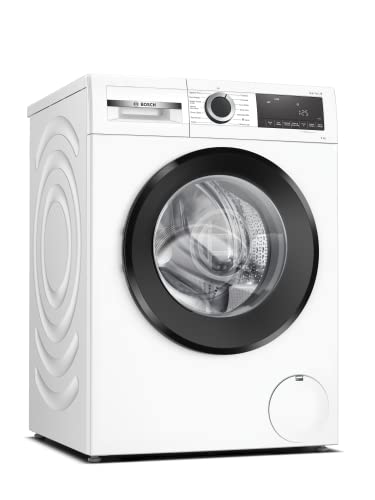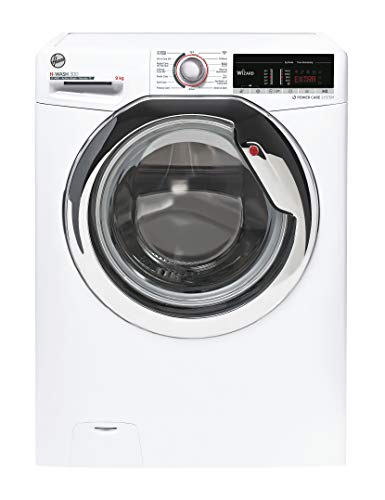Are You Sick Of 9kg Washer? 10 Inspirational Sources That Will Invigor…
페이지 정보
작성자 Tasha 작성일24-02-05 21:33 조회21회 댓글0건본문
 Why Buy a 9kg washing machine uk Washer?
Why Buy a 9kg washing machine uk Washer? Wash large loads at home and keep your clothes looking great with a 9kg washer. A large drum means that larger items such as bedding can be washed - reducing trips to the launderette.
Wash large loads at home and keep your clothes looking great with a 9kg washer. A large drum means that larger items such as bedding can be washed - reducing trips to the launderette.When deciding on the most suitable washing machine size, you need to take into account your typical load weight. To get an idea, you can weigh your clothes in a basket, or use the balance of your laundry.
Capacity
The capacity of a washing machine refers to the maximum amount of laundry it can wash. A washer with a large capacity will aid in reducing your washing load and save money on water and energy bills. A larger machine may also cost more than one with a lower capacity. Whatever the size, ensure whether the washer will fit in your home prior to purchasing it.
You may want to consider the model with the capacity to handle a lot of load when looking for the latest washing machine. This is important for families with more than four people. A washer with a high load capacity will be able to accommodate lots of clothes and accessories. This will ensure that your laundry is properly cleaned and in less time.
A 9kg washer is perfect for anyone looking to buy an all-new machine for their home or for a small boardinghouse. This size can easily accommodate a couple of sets of work clothes, gym gear and weekend outfits for every person in the family. It can even handle the weight of a king-sized duvet in the down setting.
If you have a very large family, a 10kg machine can be used to wash more clothes simultaneously. It can handle heavier items such as towels and bedding. When shopping for a new washer, be sure to consider your laundry habits and the size of your family. It's not necessary to purchase an enormous capacity washing machine that you won't use frequently. This will cost you money and energy.
The maximum weight that the machine can take is indicated by the rating of 5kg or 7kg. Larger washers can handle larger loads but they also require longer to clean and consume more energy than smaller models. In addition, larger capacity washers tend to be bigger than their smaller counterparts, which means they can take up more space in your home. This isn't a major issue for the majority of people, but it is something to consider if you are limited in space in your home.
Energy efficiency
You'll need to select a machine which uses less electricity and water in case you don't want your energy bills to rise. There are many models that have excellent energy ratings that will help you save money over the long term. There are also washers that are more environmentally green. For instance, some machines will automatically dispense the correct amount of detergent, and you can also choose the amount of water used.
The size of your household will influence the frequency of washing. The size of your household will determine the frequency at which you wash. Larger households require a larger washing machine to handle the load of laundry, while smaller families can do with a smaller. There are 9kg washers that can handle a medium-sized duvet, which means you don't have to head to the launderette every three months.
When choosing a washing machine take note that the capacity isn't the weight of the machine but the maximum load it is able to handle. Overloading a washer could cause it to fail to wash clothes properly or consume too much energy and water. The weight of the items will allow you to determine how much laundry you can placed in the machine. A typical load weighs about 1kg and consists of about a dozen tops, 5 pairs of trousers, and two sheets for bed.
A larger drum means that more clothes can be cleaned in one cycle. This can reduce the time it takes to wash your laundry, so you can go back to other things during the day. Many 9kg washers come with a handy add-on function for those with some extra items. You can throw in a few pillows or socks without worrying if they will fit.
Ecobubble technology is also available in energy-efficient 9kg washing machines. The detergent turns into tiny bubbles that penetrate the fabric. This helps remove soil, reduces cycle times and shields your clothing from shredding or fading.
Noise
Some washers make loud noises during the spin cycle. This kind of sound usually indicates an imbalanced load, and the solution is to stop the machine and redistribute the washing before resuming the process. A loud thud during the spin cycle may suggest that the washer is carrying too much weight. This can be fixed by shifting the load around and removing or adding items when needed.
During the spin cycle the washer generates vibration which causes objects to shake and rattle inside the drum. This can be particularly irritating in the event that the washer is placed in an open-plan living area however there are methods to lessen the sound. This kind of rattling is usually caused by zips or buttons that get caught in the lint filter and door seal. In some instances the rattling may be corrected by simply lifting the lint trap and removing any stuck items.
If the rattling noise is more intense the problem could be more serious. It could be a sign of a broken shock absorber on a front-load washer or a damaged balance spring on top-load washers. It is crucial to seek assistance from a repair expert immediately in order to avoid problems that could result in damage and an expensive breakdown.
A 9kg washer is able to fit a medium king size duvet. Although certain models make less noise than others during the washing cycle The most noisy washing machines create a lot of noise during the spin cycle. The LG AI DD - F4V310WNEH is one of quietest washers, producing just 71 decibels during the spin cycle.
This model comes with an Inverter Direct Drive motor to reduce vibration and noise levels and is rated A for energy efficiency. It's a good option for families that are busy and has numerous useful programs, including a 30-minute quick wash programme for dirty clothes. It can detect the weight and the softness of your laundry and determine the best wash pattern. This helps prevent excessive wear on your clothes.
Flexibility
If you see washing machine specifications listed in kilograms, this refers to the weight of a full load of laundry, and is not the weight of the washer itself. The weight of your laundry loads will vary and you can usually work out what the average load size is by weighing it before you wash it, or by searching online to determine how many clothes a washing machine can hold at once. You can also check the capacity by comparing the number of towels or t-shirts it can hold.
A large capacity washer is the ideal option if you wish to avoid the mess that comes with laundry day. A 9kg washer will wash the entire week's worth of clothing and bedding for a typical household in one go. This means that you will use less energy running your machine and enjoy more time doing other things.
A 9kg washer is perfect for cleaning large items such as duvets and sheets. A 9kg drum can fit two or a medium king duvet easily and is ideal for families with two or three people.
Another benefit of a higher capacity washing machine is the flexibility it gives in terms of cycle options and settings. Some machines come with different settings for speed, so you can adjust your cycle based on the material and time available. This can help lessen the wear and wear and tear on your laundry products as well as keeping your energy costs low.
Certain washers come with a range of settings for care of your fabric, including fabric softener and stain remover which can improve the lifespan of your clothes. Some models also have a delay start and time delay functions that let you program your machine to start at a convenient time.
It is evident that a 9kg washing machine is frequently considered to be the most reliable laundry partner. Its large capacity allows you to complete a week's worth of laundry in one go while being gentle on your clothes and the surroundings. Its user-friendly design as well as the latest technology make it an excellent choice for any household.
댓글목록
등록된 댓글이 없습니다.
 즐겨찾기 추가하기
즐겨찾기 추가하기





 관유정 커뮤니티
관유정 커뮤니티